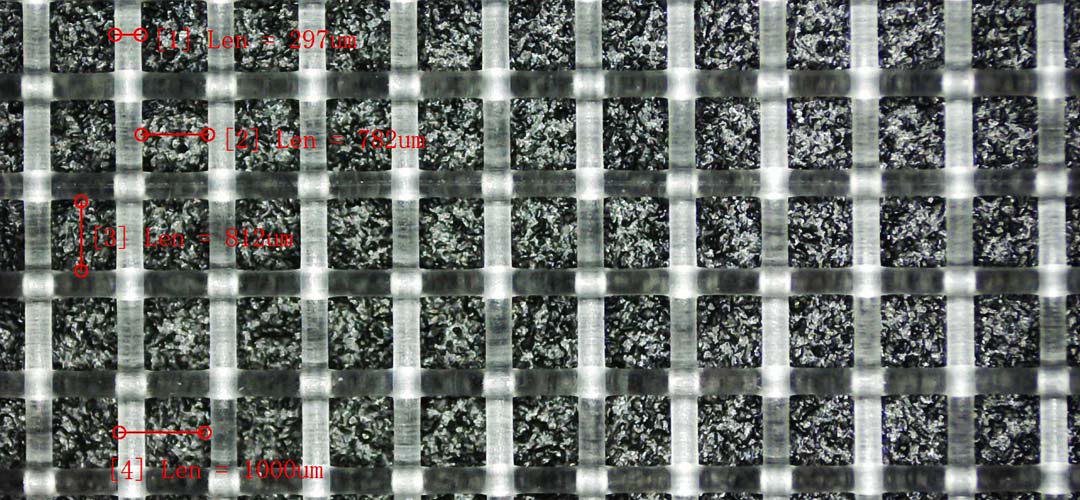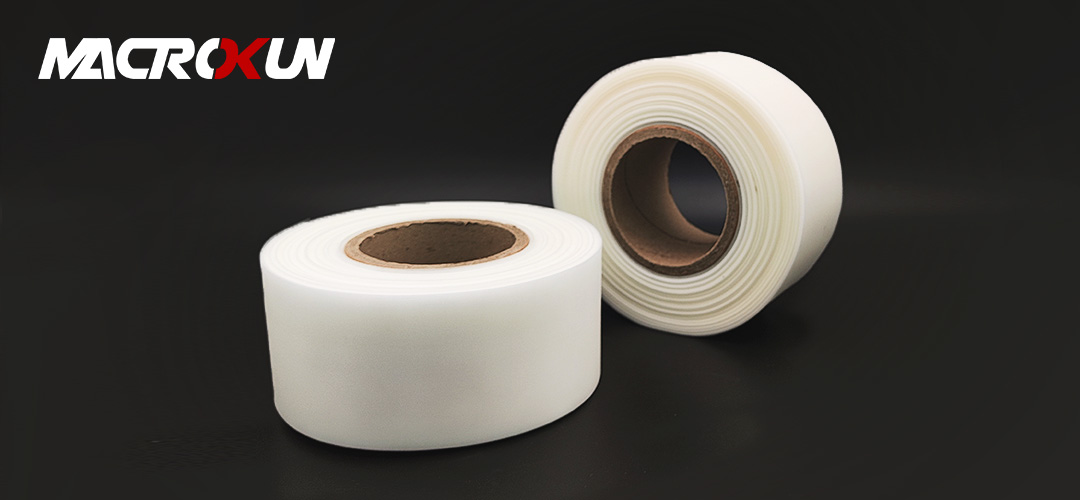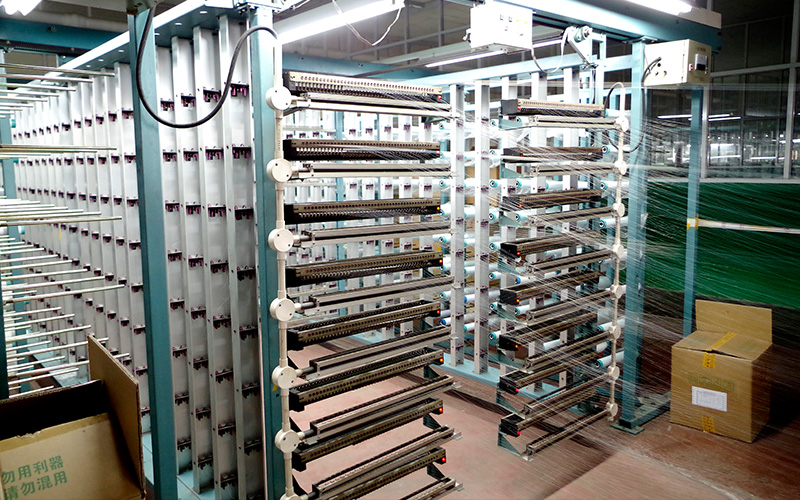Filtration is a crucial process in many industries, from food and beverage production to pharmaceuticals and water treatment. The use of the right filter media is essential to ensure the efficiency and effectiveness of the filtration process. One popular choice for filtration media is 300 micron nylon mesh, which offers a range of benefits that make it ideal for a variety of applications.

One of the key benefits of using 300 micron nylon mesh in filtration is its durability. Nylon is a strong and resilient material that can withstand high pressures and temperatures, making it suitable for use in demanding filtration environments. This durability ensures that the mesh can effectively capture particles and contaminants without breaking or tearing, prolonging the lifespan of the filter and reducing the need for frequent replacements.
In addition to its durability, 300 micron nylon mesh also offers excellent chemical resistance. This means that it can be used with a wide range of chemicals and solvents without degrading or losing its filtration efficiency. This versatility makes nylon mesh filters suitable for use in a variety of industries where different types of liquids or gases need to be filtered.
Another benefit of using 300 micron nylon mesh in filtration is its high flow rate. The open weave structure of nylon mesh allows for fast and efficient filtration, ensuring that liquids or gases can pass through the filter quickly without clogging or slowing down the process. This high flow rate is essential for maintaining the productivity and efficiency of filtration systems, especially in high-volume applications.
Furthermore, 300 micron nylon mesh offers excellent particle retention capabilities. The fine mesh size of 300 microns allows the filter to capture small particles and contaminants, ensuring that the filtered liquid or gas is clean and free from impurities. This level of particle retention is essential for industries where product quality and purity are paramount, such as in the pharmaceutical and food and beverage industries.
Additionally, 300 micron nylon mesh is easy to clean and maintain, making it a cost-effective filtration solution. The mesh can be easily rinsed or washed to remove trapped particles and contaminants, extending the lifespan of the filter and reducing maintenance costs. This ease of maintenance also ensures that the filter remains efficient and effective over time, providing consistent filtration performance.
In conclusion, the benefits of using 300 micron nylon mesh in filtration are clear. Its durability, chemical resistance, high flow rate, particle retention capabilities, and ease of maintenance make it an ideal choice for a wide range of filtration applications. Whether you are filtering liquids or gases in the food and beverage industry, pharmaceuticals, water treatment, or any other industry, 300 micron nylon mesh can help you achieve efficient and effective filtration results. Consider incorporating this versatile and reliable filter media into your filtration systems to experience the benefits firsthand.
Nylon mesh is a versatile material that is commonly used in filtration applications across various industries. One of the most popular sizes of nylon mesh is the 300 micron mesh, which is known for its ability to filter out particles of a specific size. In this article, we will explore the role of 300 micron nylon mesh in filtration and its applications in different industries.
The 300 micron nylon mesh is a fine mesh that is capable of filtering out particles that are 300 microns in size or larger. This makes it ideal for applications where a high level of filtration is required, such as in the food and beverage industry. In this industry, the 300 micron nylon mesh is commonly used to filter out impurities from liquids such as juices, wines, and other beverages. The mesh is able to trap particles such as pulp, seeds, and other debris, ensuring that the final product is clean and free from contaminants.
Another industry where the 300 micron nylon mesh is widely used is the pharmaceutical industry. In this industry, the mesh is used to filter out particles from liquids and gases, ensuring that the final product meets the required purity standards. The mesh is also used in the production of medications, where it helps to remove impurities and ensure that the final product is safe for consumption.
The 300 micron nylon mesh is also commonly used in the automotive industry, where it is used to filter out particles from engine oil, fuel, and other fluids. The mesh helps to prevent contaminants from entering the engine and causing damage, ensuring that the vehicle runs smoothly and efficiently. In addition, the mesh is also used in the production of air filters, where it helps to trap dust, pollen, and other particles, ensuring that the air inside the vehicle is clean and free from allergens.
In the manufacturing industry, the 300 micron nylon mesh is used in a wide range of applications, including water filtration, air filtration, and chemical filtration. The mesh is able to filter out particles of a specific size, ensuring that the final product meets the required quality standards. In addition, the mesh is also used in the production of industrial filters, where it helps to remove impurities from liquids and gases, ensuring that the final product is safe for use.
Overall, the 300 micron nylon mesh plays a crucial role in filtration applications across various industries. Its ability to filter out particles of a specific size makes it ideal for applications where a high level of filtration is required. Whether it is in the food and beverage industry, pharmaceutical industry, automotive industry, or manufacturing industry, the 300 micron nylon mesh is a versatile material that is essential for ensuring the quality and purity of the final product.
Filtration is a critical process in many industries, from food and beverage production to pharmaceuticals and water treatment. One common type of filter used in these applications is the 300 micron nylon mesh filter. This type of filter is known for its ability to effectively remove particles and impurities from liquids, making it an essential component in maintaining product quality and ensuring regulatory compliance.
Proper maintenance and cleaning of 300 micron nylon mesh filters are crucial to their performance and longevity. Without regular maintenance, these filters can become clogged with debris, reducing their effectiveness and potentially causing damage to equipment downstream. In this article, we will explore the importance of proper maintenance and cleaning of 300 micron nylon mesh filters, as well as best practices for keeping them in optimal condition.

One of the key reasons why proper maintenance of 300 micron nylon mesh filters is essential is to ensure consistent filtration performance. Over time, these filters can become clogged with particles and impurities, reducing their ability to effectively remove contaminants from liquids. This can lead to decreased product quality, increased downtime, and potential regulatory issues. By regularly cleaning and maintaining these filters, businesses can ensure that they continue to operate at peak efficiency and deliver high-quality results.
In addition to maintaining filtration performance, proper maintenance of 300 micron nylon mesh filters is also important for protecting downstream equipment. When filters become clogged, the pressure within the system can increase, putting additional strain on pumps, valves, and other components. This can lead to increased wear and tear, reduced equipment lifespan, and costly repairs. By keeping filters clean and well-maintained, businesses can help prevent damage to downstream equipment and minimize maintenance costs.
To ensure proper maintenance of 300 micron nylon mesh filters, it is important to establish a regular cleaning schedule. Depending on the application and level of contamination, filters may need to be cleaned daily, weekly, or monthly. Cleaning procedures typically involve rinsing the filter with water or a cleaning solution to remove debris and buildup. In some cases, filters may need to be soaked in a cleaning solution or subjected to ultrasonic cleaning to remove stubborn contaminants.
In addition to regular cleaning, it is also important to inspect filters for signs of damage or wear. Tears, holes, or other defects in the mesh can compromise filtration performance and lead to leaks or contamination. If any damage is detected, filters should be replaced immediately to prevent issues from occurring.
Overall, proper maintenance and cleaning of 300 micron nylon mesh filters are essential for ensuring consistent filtration performance, protecting downstream equipment, and minimizing maintenance costs. By establishing a regular cleaning schedule, inspecting filters for damage, and following best practices for maintenance, businesses can maximize the lifespan and effectiveness of these critical components. Investing time and resources in proper filter maintenance can pay off in the form of improved product quality, reduced downtime, and increased operational efficiency.
When it comes to filtration, the choice of material plays a crucial role in determining the efficiency and effectiveness of the process. Among the various options available, 300 micron nylon mesh has gained significant attention due to its unique properties and advantages. To fully appreciate its benefits, it is essential to compare it with other filtration materials, such as polyester mesh, stainless steel mesh, and polypropylene mesh. Each of these materials has its own set of characteristics that can influence their performance in different applications.
Firstly, nylon mesh, particularly at the 300 micron level, offers a remarkable balance between strength and flexibility. This makes it suitable for a wide range of applications, from industrial processes to food and beverage filtration. In contrast, polyester mesh, while also flexible, tends to have a lower tensile strength compared to nylon. This difference can be critical in applications where durability is paramount. Furthermore, nylon mesh exhibits excellent chemical resistance, which allows it to perform well in environments where exposure to solvents or acids is a concern. Polyester, on the other hand, may not withstand certain chemicals as effectively, potentially leading to degradation over time.
Transitioning to stainless steel mesh, it is important to note that while stainless steel offers superior strength and durability, it lacks the flexibility that nylon mesh provides. This rigidity can be a disadvantage in applications requiring intricate shapes or where the mesh needs to conform to specific surfaces. Additionally, stainless steel can be more expensive than nylon, making it less appealing for projects with budget constraints. However, stainless steel does excel in high-temperature applications and environments where corrosion is a significant concern, which can make it the preferred choice in certain industrial settings.

In comparison, polypropylene mesh presents another alternative in the filtration landscape. Polypropylene is lightweight and resistant to many chemicals, making it a viable option for various applications. However, it generally does not offer the same level of strength and durability as nylon mesh. The 300 micron nylon mesh stands out in this regard, as it combines the lightweight nature of polypropylene with enhanced strength, making it suitable for more demanding filtration tasks. Moreover, nylon mesh can be easily cleaned and reused, which adds to its cost-effectiveness over time.
Another aspect to consider is the filtration efficiency of these materials. The 300 micron nylon mesh provides a fine filtration capability that can effectively capture particles while allowing for optimal fluid flow. This is particularly important in applications where maintaining flow rates is critical. While other materials may also offer fine filtration, they may not achieve the same balance of flow and particle retention as nylon mesh. This efficiency can lead to reduced operational costs and improved overall system performance.
In conclusion, while there are various filtration materials available, the 300 micron nylon mesh distinguishes itself through its unique combination of strength, flexibility, and chemical resistance. When compared to polyester, stainless steel, and polypropylene meshes, nylon mesh often emerges as a versatile and cost-effective solution for a wide range of filtration needs. By understanding these differences, businesses can make informed decisions that align with their specific requirements, ultimately enhancing their operational efficiency and effectiveness in filtration processes.
Pre: 5 Micron Nylon Filter Cloth: Small-Scale Filtration Made Easy
Next: Why Nylon Monofilament Mesh Is Popular in Industrial Applications

MACROKUN has established long-term and stable cooperative relations with many transportation companies such as China Post, DHL, FEDEX, USPS, UPS, etc. Of course, MACROKUN can also provide air and sea transportation. The powerful logistics system enables all MACROKUN'S Printing Mesh, Filter Mesh and Filter Bags and so on to be easily and efficiently transported to any place. For quotes and inquiries, please email our sales team.





